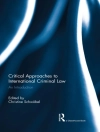The definitive guide to the world’s most contested region
Updated edition covering the strategic impacts of Covid-19, China’s economic coercion against Australia, the Afghanistan withdrawal, Joe Biden, the Quad and US-China rivalry.
The Indo-Pacific is both a place and an idea. It is the region central to global prosperity and security. It is also a metaphor for collective action. If diplomacy fails, it will be the theatre of the first general war since 1945. But if its future can be secured, the Indo-Pacific will flourish as a shared space, the centre of gravity in a connected world.
What we call different parts of the world – Asia, Europe, the Middle East – seems innocuous. But the name of a region is totemic- a mental map that guides the decisions of leaders and the story of international order, war and peace. In recent years, the label ’Indo-Pacific’ has gained wide use, including among the leaders of the United States, India, Japan, Australia, Indonesia and France. But what does it really mean?
Written by a recognised expert and regional policy insider, Contest for the Indo-Pacific is the definitive guide to tensions in the region. It deftly weaves together history, geopolitics, cartography, military strategy, economics, games and propaganda to address a vital question- how can China’s dominance be prevented without war?
‘The complexities of our region can easily bewilder those used to the Manichaean simplicity of the Cold War. Rory Medcalf’s book is an elegant, keenly insightful tour of the Indo-Pacific’s strategic horizon.’ -Malcolm Turnbull
Om författaren
Rory Medcalf is a professor and Head of the National Security College at the Australian National University. His experience as an Australian diplomat includes postings to New Delhi, Tokyo and Papua New Guinea. He was a senior strategic analyst in Australia’s peak intelligence agency, the Office of National Assessments and was the founding director of the international security program at the Lowy Institute. He has been published widely, including in The New York Times, The Wall Street Journal, The Financial Times, The Economist, The South China Morning Post and The Hindu, as well as on the ABC, BBC and CNN.












